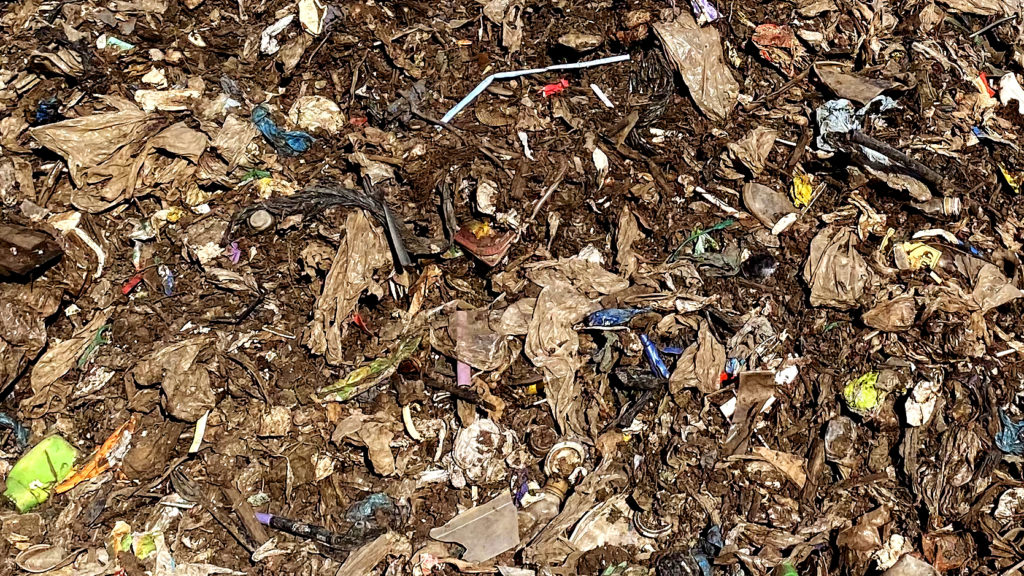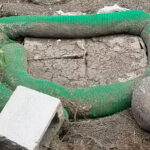Top: The Malawi study utilized a low tech composting method with manual pile turning.
Malawi, a country in Southern Africa, suffers from depleted agricultural soils, a dependence on subsidized chemical fertilizers, and an abundance of organic waste that is either not collected or is being landfilled. In urban areas, the organic waste stream is often contaminated with plastics. Mabvuto Yesaya and Wrixon Mpanang’ombe, researchers at the Center for Water, Sanitation, Health and Appropriate Technology Development at Malawi University of Business and Applied Science in Blantyre, teamed up with Elizabeth Tilley at ETH Zurich in Switzerland to investigate the technical and financial feasibility of centralized composting in Malawi. “If composting is going to become more widely implemented, it must be profitable and ideally, competitive with chemical nutrients, however the time and cost associated with plastics removal is currently a bottleneck to profitability,” explain Yesaya, Mpanang’ombe and Tilley in their paper, “The Cost of Plastics in Compost,” published in early November.

Researchers estimated that 12.3% of active labor time was spent sorting out plastics — from the point of organic waste arrival to end product packaging.
They investigated the financial sustainability of compost production using a Time-Driven Activity-Based Costing (TBABC) method over 16 weeks to identify the types and duration of each activity required. TBABC is a tool used to disaggregate and identify the labor activities required for a process to better understand the economic viability of a business. “Rather than estimating productivity with known payments, self-reported values or standard costs, the method is based on a detailed account of the time that each activity takes, and the human resources allocated,” notes the paper. “Additionally, this method helps in the identification of ‘idle’ time which would otherwise go undetected. In understanding which activities take the most time and are therefore most expensive, targeted modifications can be implemented and tested to reduce overall costs and increase output efficiency.”
The paper walks through application of the TBABC analytical tool to a composting operation, which “generally involves a linear sequence of 14 activities” once the organic waste arrives at the facility. The sequence covers plastic sorting, piling, plastic removal from piles, turning, plastic removal from finished compost, drying, piling compost before screening, screen installation, screening, four steps related to bagging compost, and site cleaning. “The results show that it took one hour and 50 minutes of labor to produce a 165-L (0.065 m3) bag of compost,” report the researchers. “A total of 12.3% of the active labor time was spent sorting out plastics from the organic waste before composting, during composting and from the finished product before packaging.” They add that until similar work is published on the topic, “these values cannot be evaluated as being either optimal or wasteful, but rather, serve as a baseline against which future interventions — e.g., source separation, especially at [produce] markets, can be evaluated. Though based in Malawi, the documented and modeled costs can be converted and scaled by other entrepreneurs/agencies who are interested in estimating the financial feasibility of composting in their own context.”













